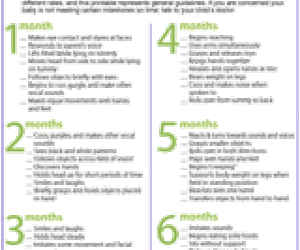A concerned mother asks whether something should be done to correct her five-month-old's "tight foreskin."
Q
My husband had a tight foreskin and he had it removed as an adult. It did not back up his urine, it just made sex impossible. We just found out that my five-month-old son has the same problem. My husband suffered humiliation because of this problem, but does not want our son to have to remove the foreskin until he is a teenager because of the pain and the surgery risk. My question is: should we get this done now, or should we wait?
A
The condition that you are talking about is called phimosis, which means a tightening of the foreskin such that it cannot be pulled back over the tip of the penis. I would not automatically assume that your five-month-old son has the same problem, as most infant boys have a "tight foreskin" in the early months, which then loosens up as they get older and subsequently can be pulled back quite normally. In fact, in 50 percent of newborn boys, the foreskin can not be pulled back enough to see the opening of the urethra (where the urine comes out). In contrast, by age three, the foreskin can be pulled back completely in 90 percent of boys, and by the teenage years virtually all boys have a retractable foreskin. There is no need for you to help this natural process along by tugging on the foreskin, by trying to force it back, or by cleaning inside of it.
If your son were to eventually have a phimosis, it might be an option to have a circumcision done at some point. There is definitely some debate about whether or not it is really necessary, and there are some urologists who recommend treatment with medications rather than surgery.





